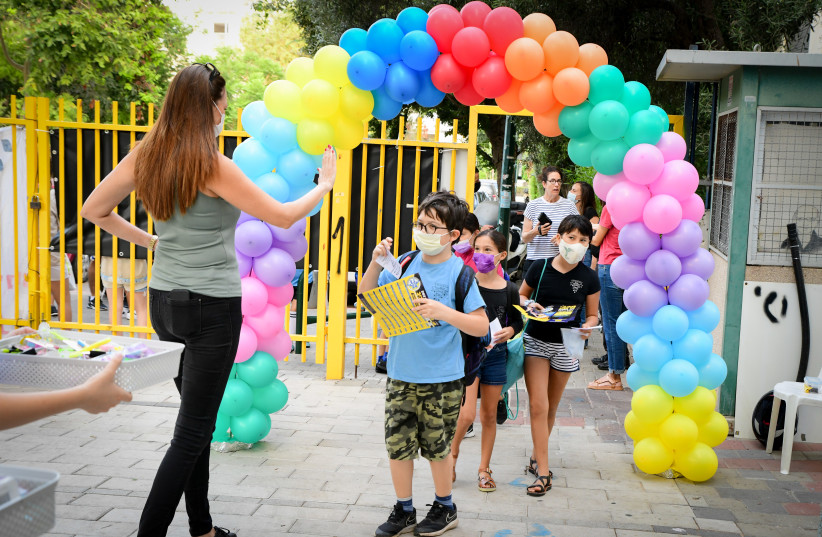In the second half of August, the question of whether the beginning of the school year should be maintained on the usual date of September 1 or postponed became dominant in the public debate.
With the number of coronavirus active cases increasing and the period of the Jewish holidays starting less than a week later – significantly limiting the amount of school days in September – many thought it could make sense for children to return to their classroom a little later. In the end, however, the government decided that after two years seriously disrupted by the pandemic, offering families something as close as possible to a normal educational framework was the best choice.
Ten days later, has this choice paid off?
Israel has about 2.4 million children from pre-school to high school – including the children in the ultra-Orthodox sector who had returned to school some three weeks earlier.
According to Health Ministry data, on September 1 there were some 40,044 infected schoolchildren and another 57,260 in isolation after being exposed to verified cases. Among staff, the active cases were 2,450 and those in quarantine 1,539.
On Monday morning the report showed that the number of active cases among students has just slightly increased to 41,366, with 108,832 children in isolation. Among teachers, the figures have not significantly changed since the beginning of the month.

The number of students vaccinated with at least one shot only modestly increased to 795,000.
“I personally know many families who had to spend Rosh Hashanah by themselves because their children were sent to isolation,” Prof. Cyrille Cohen, the head of the immunology lab at Bar-Ilan University, said. “We were expecting it and we are also seeing an increase in tests, which means more fear they have been exposed to someone infected.
“Was it right to open then? I believe that at least to some extent, it was,” he added.
According to Cohen, it is hard to know what would have happened if schools had remained closed, but having returned children to classrooms, in spite of the problems, is offering important insights into how to move forward with the rest of the school year.
“We are learning a lot about the dynamics of the epidemic in schools, which will help us in the long run because the last thing we want is to keep children in front of screens,” he noted.
The professor remarked that ideally, it would have been good to reopen schools only when cases were lower.
“However, we did not have any guarantee that this would have happened, even a month later in October,” he said.
He acknowledged that the high number of children who are in isolation is a problem. For this reason, he believes the Green Class outline, which is currently being tested in some schools in the haredi and the Arab sectors, can provide an answer.
Under the outline, children whose classmates screen positive would not need to quarantine, but rather be tested every day for a week.
“I believe at this point it is a matter of risk management,” Cohen said. “It is important to find a solution to avoid sending students home for a week every time someone is positive.
“In Israel, there are about 200 school days in a year,” he noted. “In a class of 30 students, if five or six at a turn test positive, this could lead to missing some 40 days. The impact would be very negative. Ideally, I would have liked to launch a program like this one when Israel had 1,000 new cases a day instead of 10,000 – like other countries did - but I think this is the least problematic solution.”
However, there is still no certainty that the Health Ministry will approve the outline.
Also on Monday, coronavirus czar Prof. Salman Zarka said the program was still being evaluated.
“We still do not know if this is successful and ensures that kids do not contract coronavirus,” he said. “We want to live normal lives, but we are still not there yet.”
Maayan Hoffman contributed to this report.
